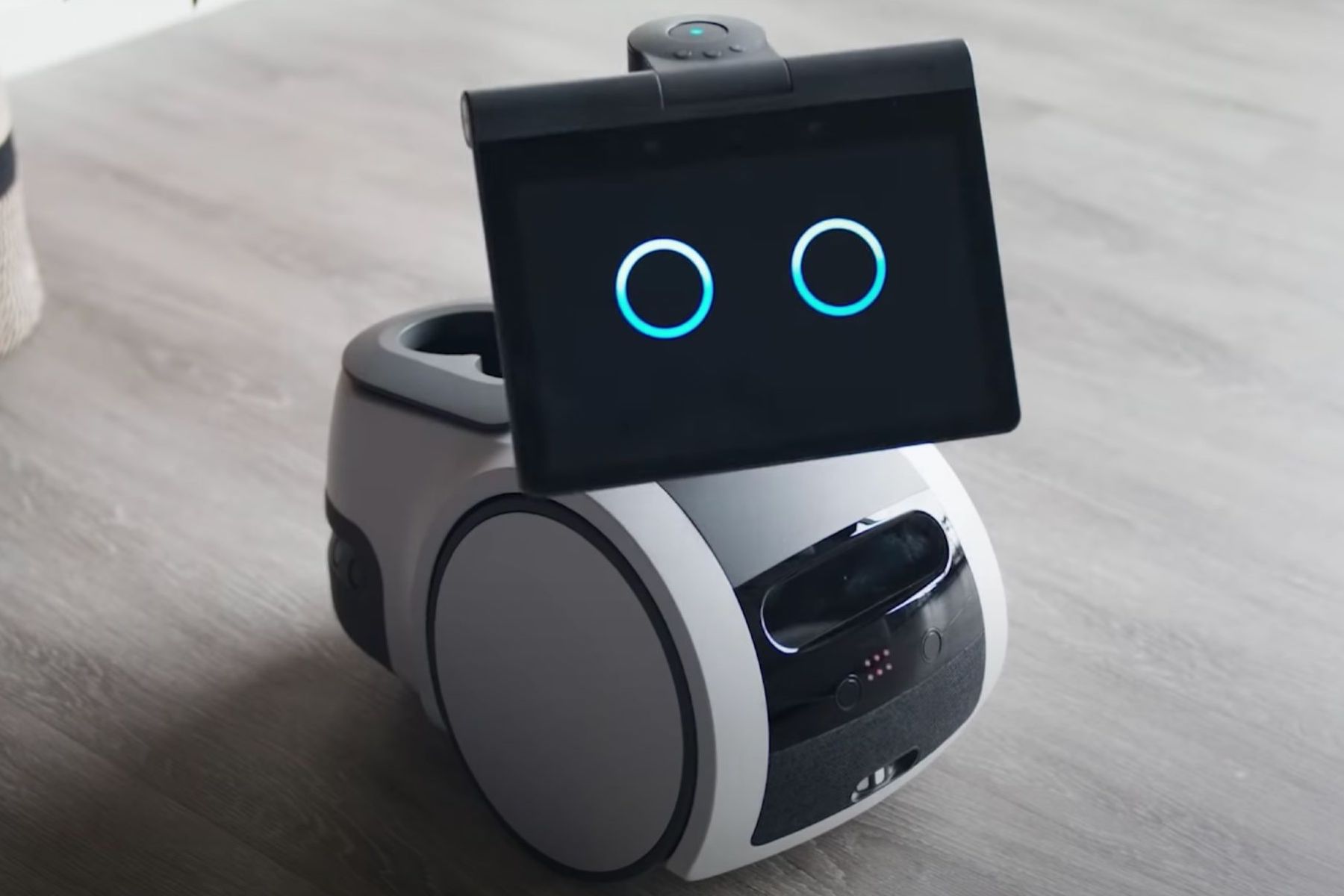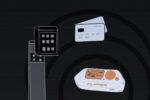When I was young, around the age of five, I managed to sneak off to watch the original “Child’s Play” with my older brother, an event that launched a near decade-long irrational fear of all things doll-like. Unsurprisingly, reading about Amazon’s new “mobile security” creature, Astro, gave me goosebumps and stirred up some of that old, not-so-sane apprehension for any inanimate object that gives off a Chucky vibe.
So, who or what is Astro? I’d liken it to if a Roomba and Alexa spawned a robo-baby, minus the vacuum functionality. Equipped with a tablet for its face, tiny speakers and a periscopic camera, you can use it to video chat, play music and check your Ring security system. Basically, it has everything you could do on your phone but on multi-directional wheels.
Besides being a device that’s brimming with redundant accessibility functions, Astro’s mobile security features make it an open invitation for trespassing trouble. There isn’t a residential demand for security measures outside the realm of surveillance cameras, owning a guard dog or hiring an actual living, breathing guard. Yet here we are, letting a two-foot-tall, battery-operated, camera-wielding cup holder run facial recognition scans on everyone that enters our home. Astro’s purpose as a home security device seems like a far-fetched ploy and one that doesn’t even make sense.
There are many flaws to Astro’s overall design — one of which is its inability to navigate a simple staircase. Leave it to Amazon to ingenuously bypass this little hiccup by requiring an invitation to buy the device, which can only be received after answering a set of questions, including ones like “Do you have stairs in your house?” and “Are there a lot of shiny, mirrored surfaces within your home?” What, is it a Gremlin now too? Don’t feed it after midnight.
All of these seemingly innocuous flaws are effectively swept under the rug in Astro’s promotional campaign, which instead spotlights its cute factor as the main selling point. I don’t know about you, but for $1,000, I want Rosie from “The Jetsons,” not a cute, shin-high robot that can’t handle a couple of steps. Sorry, Astro, even your R2-D2-like noises won’t sway me. If the ads were honest, they’d read more along the lines of something like this:
“Feeling unsafe, but no ordinary surveillance camera can provide the amount of assured safety you desire? Hiring a security guard isn’t financially feasible either? Well, look no further! Astro’s here to violate your privacy from the comfort of your own home! Catching everything that happens within its sightline maximizes its ability to minimize your confidentiality!
Without opposable thumbs, Astro can’t do much in the way of defensive fighting, but it can bring you a cold beverage — after you’ve opened the fridge and set it inside of its cup holder, that is. But don’t let Astro’s limitations turn you away; there’s plenty it can do, like:
- Follow, track and store the movements and habits of everyone within its household.
- Get jammed taking sharp corners, admitting defeat until it’s physically moved.
- Commit its version of robot seppuku as it throws itself down any flight of stairs it encounters.
- Flood your phone with an egregious number of notifications each time the motion-detecting porch light is accidentally triggered and in every instance of wrongful identification thanks to faulty facial recognition.
- Operate on a ground level, leaving its vulnerable body in prime position to be accidentally stepped on, kicked and even tripped over.
All these features and more are available to anyone if you can get an invitation. Just answer our bizarre questionnaire, and you could be well on your way to making Astro the next addition to your family — one that might even accost your pets!”
Yeah, hard pass. Maybe my childhood trauma is making me unfairly biased. However, as more insider information is leaked, it seems unlikely that’s the case. The provided details are primarily sourced from anonymous or identity redacted ex-employees that worked on the various stages of Astro’s production. One ex-employee said, “It’s, at best, absurdist nonsense and marketing and, at worst, potentially dangerous for anyone who’d actually rely on it for accessibility purposes.”
Several developers that were a part of Astro’s production claimed that the versions of the robot they worked on didn’t work well at all. One such developer criticized its intention to provide security: “The person detection is unreliable at best, making the in-home security proposition laughable.”
I find myself asking, “What’s the point?” Are people really so tech-hungry they’re willing to forgo their privacy? Maybe it’s loneliness because, as a 2019 study indicated, owning a robot pet actually reduced depression and increased well-being in senior citizens.
Another aspect of Astro’s existence that’s even more difficult to get over is the fact that, besides from, say, a nanny cam, most security surveillance goes around the outside perimeter of a building. This is something Amazon is already knee-deep in with their Ring system, which makes dispatching an indoor robot for security utterly baffling.
Ring started out as a security measure installed in the doorbell or doorknob of one’s front door. With the device’s recording capabilities, the surveillance system preserves footage and provides a real-time video feed alongside a two-way intercom system. Ring slowly expanded to encompass everything from alarm systems and smart lighting to solar-powered signage that illuminates the Ring system’s presence as a deterrent to potential criminals. Then, it went a little too far — so far, in fact, that local police departments were gaining access to its data by way of a buried clause in the system’s terms of service.
Now, Amazon wants us to not only invite an all-seeing robot into our homes but to pay additional fees so that it can link to Ring’s privacy blundering system? Astro’s association with Ring isn’t even as troubling as allowing Amazon, a trillion-dollar company that’s made its revenue by gleaning information from its users, access to even more personal data. But hey, what could possibly go wrong with allowing Astro to store a blueprint of your home to its Cloud storage?
With its novelty appeal, it’s hard for consumers to see Astro as being culpable of a data breach. Yet, all of this has my tiny, inner conspiracy theorist interested, as I’m left to wonder: Maybe that’s exactly what Amazon wants.

















